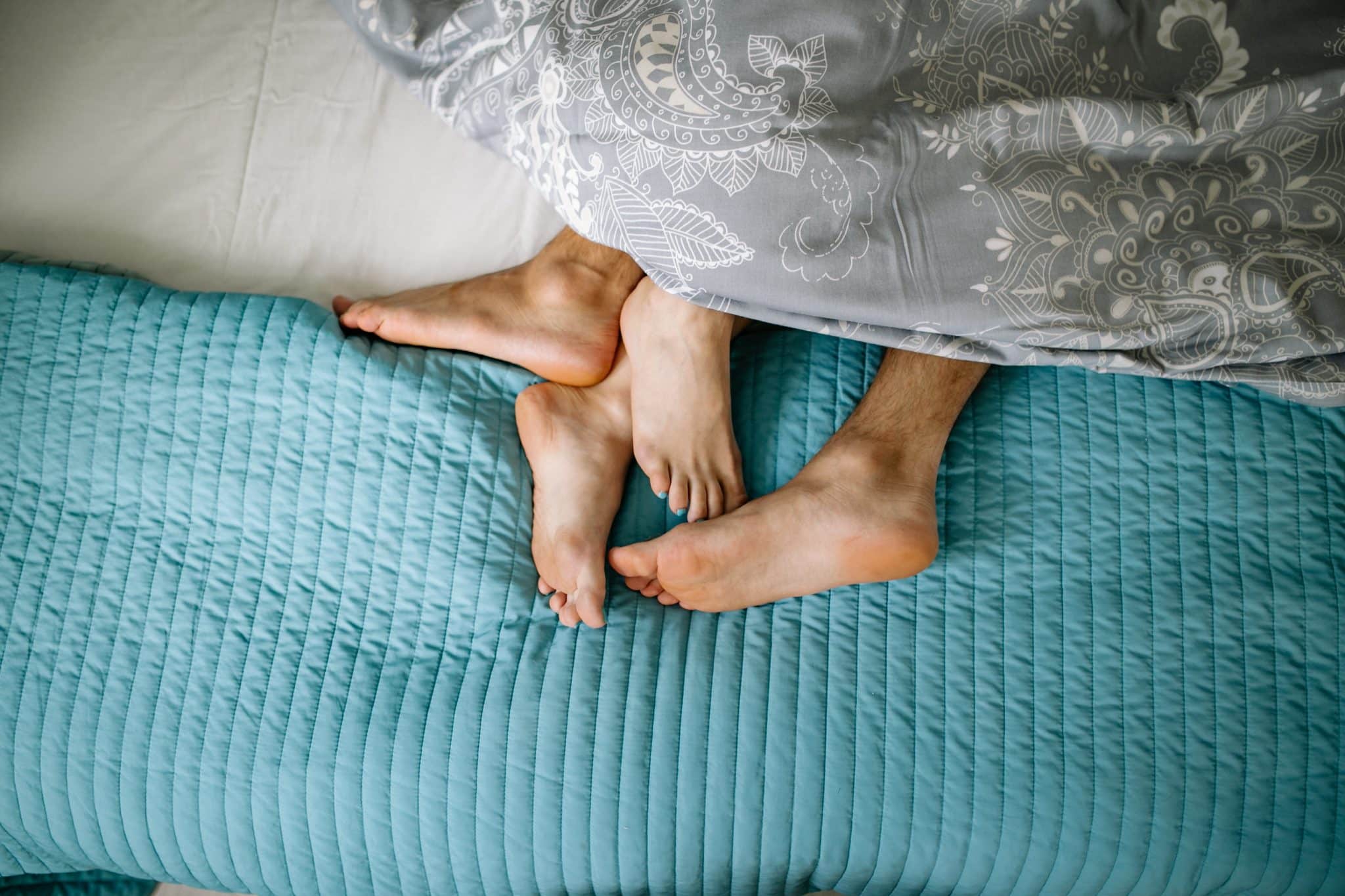What is on this page
- Breaking the Cycle: Understanding and Overcoming Performance Anxiety in the Bedroom
- Unlocking the Root of Performance Anxiety
- Tips for Conquering Anxiety and Achieving Sexual Confidence
- Uncovering the Roots: Addressing the Underlying Causes of Performance Anxiety
- Psychosexual Counselling and Performance Anxiety in Bed
Breaking the Cycle: Understanding and Overcoming Performance Anxiety in the Bedroom
Performance anxiety in the bedroom refers to feelings of nervousness, stress, or pressure related to sexual performance. It can include concerns about erectile dysfunction, premature ejaculation, or difficulty achieving orgasm.
Performance anxiety is a common issue among both men and women.
Performance anxiety can lead to a loss of sexual desire and difficulties with sexual function and can cause strain in intimate relationships. It can also lead to shame, guilt, and low self-esteem. In addition, it can have a negative impact on overall sexual satisfaction and well-being.

Unlocking the Root of Performance Anxiety
Performance anxiety can occur in response to a situation where a person feels pressure to perform well, such as in a work setting, school, or social situation.
The causes of performance anxiety can be both psychological and physical. Psychological causes can include past experiences, self-esteem, and relationship issues. For example, a person who has had a negative experience while performing in front of others may fear repeating that experience, leading to performance anxiety. Low self-esteem or relationship issues can also contribute to performance anxiety by causing a person to doubt their abilities or feel insecure about their performance.
Physical causes of performance anxiety can include hormonal imbalances, chronic health conditions, and certain medications. Hormonal imbalances can affect a person’s mood and energy levels, making it difficult for them to perform well. Chronic health conditions, such as heart disease or diabetes, can also cause physical symptoms that make it difficult to perform well. Certain medications, such as antidepressants or beta-blockers, can also cause physical symptoms contributing to performance anxiety.
Tips for Conquering Anxiety and Achieving Sexual Confidence
Mindfulness and relaxation techniques: Practicing mindfulness and relaxation techniques can help reduce feelings of stress and anxiety. It can include deep breathing exercises, meditation, yoga, and progressive muscle relaxation.
Communication with a partner: Open and honest communication can help reduce feelings of pressure and stress. Talking about concerns and desires can help create a more comfortable and relaxed sexual environment.
Seeking professional help: Seeking help from a therapist, counsellor, or sex therapist can be beneficial in addressing the underlying causes of performance anxiety and developing strategies to overcome it.
Experimenting with different techniques and positions: It can help individuals become more comfortable and confident in their sexual abilities.
Self-exploration and self-pleasure: Engaging in self-exploration and self-pleasure can help individuals become more comfortable with their bodies and sexual desires. It will help reduce anxiety and pressure during sexual activity with a partner.
Uncovering the Roots: Addressing the Underlying Causes of Performance Anxiety
Addressing past traumas and negative experiences: Addressing past traumas and negative experiences that may contribute to performance anxiety can be done through counselling or therapy. This can help individuals work through these experiences and develop healthier coping mechanisms.
Improving self-esteem and body image: Improving self-esteem and body image can help reduce feelings of anxiety and pressure related to sexual performance. You can do that through self-care practices, such as exercise and healthy eating, as well as through therapy or counselling.
Improving communication and intimacy in relationships: Improving communication and intimacy in relationships can help reduce feelings of pressure and anxiety related to sexual performance. You can start psychosexual counselling, therapy, or communication exercises with a partner.
Addressing physical causes with a healthcare professional: Addressing physical causes of performance anxiety, such as hormonal imbalances or chronic health conditions, can help reduce anxiety and improve sexual function.
Psychosexual Counselling and Performance Anxiety in Bed

Psychosexual counselling can help individuals and couples overcome performance anxiety in the bedroom by addressing the underlying causes of the anxiety. A therapist can help individuals understand and work through past traumas, negative experiences, and self-esteem issues that may be contributing to the anxiety. They can also help individuals develop better communication and intimacy skills, reducing feelings of pressure and anxiety related to sexual performance. They can also teach relaxation and mindfulness techniques to help individuals manage their anxiety during sexual encounters.
Additionally, a therapist can work with couples to help them communicate more effectively about their sexual desires and concerns. This can create a more comfortable and relaxed sexual environment. They can also help couples work through any relationship issues contributing to anxiety.
Working with a therapist or counsellor can help individuals and couples develop the skills and strategies they need to overcome performance anxiety in the bedroom and improve their sexual relationships.

